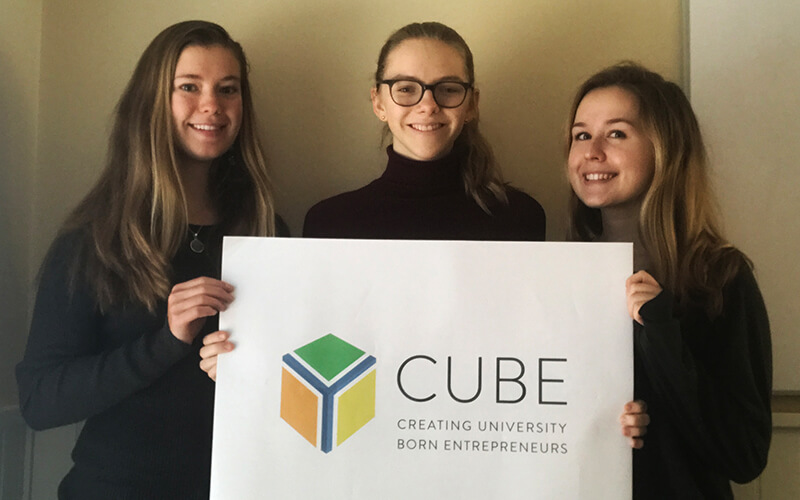


Phyta, a current CUBE social innovation venture powered by Carolina students Eliza Harrison (’19), Lucy Best (’19), and Emily Kian (’20), is making waves at startup competitions across the globe. This team is competing in Melbourne, Australia to become one of 15 Hult Prize finalists that will take part in a business accelerator program before vying for the $1 million grand prize. More than 100,000 students from 120 countries applied to participate in a Hult Prize regional final and only 3,000 remain. Phyta will present about its temperate water macroalgae project in response to this year’s Hult Prize theme, “Harnessing the Power of Energy.”
Macroalgae, also known as seaweed, are plant-like organisms that grow in coastal regions by fastening to hard surfaces, like rocks, or by floating along the ocean’s surface. While vacationers may squirm at the slimy feeling of algae between their toes during a dip in the ocean, the plant has become increasingly celebrated by scientific communities for its environmental and nutritional benefits. Macroalgae is a powerful purifier; through photosynthesis, it removes toxic elements present in ocean water from damaging practices like agricultural and industrial dumping. The nutrient-dense plant also packs a punch of vitamins, minerals, fatty acids and antioxidants when eaten.
With such powerful potential, it’s a wonder why more efforts haven’t been made to grow macroalgae everywhere; currently, macroalgae farming practices are limited to cold water climates. That’s where Phyta comes in.
This spring, Harrison, Best, and Kian are testing macroalgae growth in temperate water at the UNC Gillings School of Public Health. If all goes according to plan, they will take what they’ve learned and construct a rig – a system of buoys, ropes, and lines from which macroalgae can grow – on the coast of North Carolina.